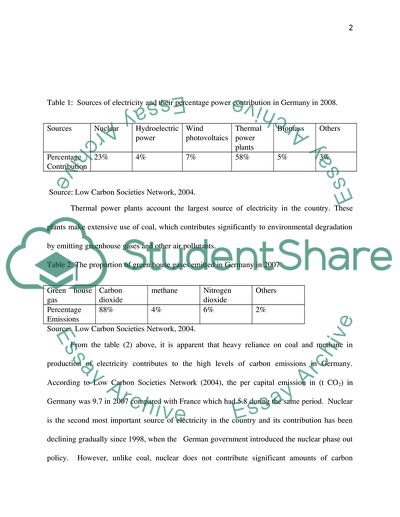Cite this document
(“Germany Energy Essay Example | Topics and Well Written Essays - 1500 words”, n.d.)
Germany Energy Essay Example | Topics and Well Written Essays - 1500 words. Retrieved from https://studentshare.org/miscellaneous/1573771-germany-energy
Germany Energy Essay Example | Topics and Well Written Essays - 1500 words. Retrieved from https://studentshare.org/miscellaneous/1573771-germany-energy
(Germany Energy Essay Example | Topics and Well Written Essays - 1500 Words)
Germany Energy Essay Example | Topics and Well Written Essays - 1500 Words. https://studentshare.org/miscellaneous/1573771-germany-energy.
Germany Energy Essay Example | Topics and Well Written Essays - 1500 Words. https://studentshare.org/miscellaneous/1573771-germany-energy.
“Germany Energy Essay Example | Topics and Well Written Essays - 1500 Words”, n.d. https://studentshare.org/miscellaneous/1573771-germany-energy.


